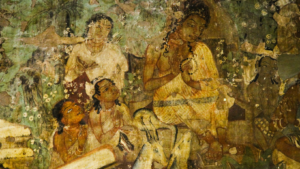Foxes have long captured human imagination, weaving their way through folklore and mythology across diverse cultures. From the cunning kitsune of Japan to the sly Reynard of European tales, these creatures embody a fascinating blend of wisdom, trickery, and transformation. Their stories offer a window into the values, fears, and aspirations of the societies that spun them.
Exploring foxtales cultural insights provides rich cultural insights, revealing how different communities interpret the fox’s symbolic nature. In many narratives, foxes serve as mediators between the human and supernatural realms, highlighting themes of intelligence and adaptability. These tales not only entertain but also reflect societal norms and ethical dilemmas, offering timeless lessons wrapped in engaging narratives.
Through the lens of foxtales, one can uncover the shared human experience of storytelling and the ways in which these narratives shape and reflect cultural identity. Delving into these stories unravels the intricate tapestry of beliefs and traditions that define communities worldwide.
Foxtales Cultural Insights

Foxtales cultural insights are narrative forms that integrate the unique symbolism of foxes, often portraying them as cunning and resourceful creatures. Throughout various cultures, these tales serve as moral compasses and educational tools. They echo societal norms and exemplify ethical boundaries through embedded messages. For instance, in Japanese kitsune stories, foxes exhibit transformative qualities, emphasizing the thin line between good and evil. Similarly, European Aesop’s fables use foxes to illustrate human virtues and vices, promoting lessons of wisdom and prudence.
In many indigenous cultures, foxtales cultural insights act as bridges between tradition and innovation. These stories preserve ancient customs while adapting to contemporary themes. Through oral traditions, they ensure cultural knowledge transfer across generations. For example, Native American legends often depict foxes as helpers or guides, encapsulating community ideals and survival strategies.
Foxtales reflect the interplay between humanity and nature. By embedding foxes into narratives, societies articulate their relationship with the environment and convey spiritual meanings. The fox’s role as a mediator between realms illustrates the inherent connection between human and mystical elements. This presents foxtales as not just entertainment but repositories of collective wisdom that capture the essence of cultural evolution.
Historical Context of Foxtales
Foxtales date back centuries, with narratives evolving across different cultures to reflect diverse societal norms and values.
Origins and Evolution

Foxtales originated in ancient societies where the fox’s cunning nature inspired stories. Early Chinese and Japanese texts, like the “Huainanzi” and “Nihon Shoki,” included foxes as mystical creatures possessing transformative abilities. Through oral tradition, these tales spread to various regions, integrating local folklore elements. In Europe during the Middle Ages, Aesop’s fables popularized fox characters, presenting them as clever but deceitful. Over time, these tales adapted to contemporary cultural contexts, maintaining their relevance.
Role in Traditional Societies
In traditional societies, foxtales served as educational tools. They communicated moral lessons and social values, often emphasizing the consequences of deceit and the virtues of wisdom. Indigenous cultures, such as Native American tribes, used foxtales to convey life lessons and preserve cultural heritage. For these communities, the fox symbolized a link between the known world and the mystical realm, acting as a guide in navigating complex moral landscapes. Thus, foxtales played a crucial role in community bonding and cultural expression.
Cultural Significance of Foxtales
Foxtales hold a special place in many cultures, offering more than simple stories by imparting lessons and reflecting societal values. These narratives continue to influence modern culture while showcasing diverse regional traditions.
Moral Lessons and Themes

Foxtales often carry profound moral lessons, presenting themes of cunning, wisdom, and resilience. They teach the consequences of deceit and reward virtues such as honesty and cleverness. In Aesop’s fables, for example, tales like “The Fox and the Grapes” explore themes of jealousy and pride. Japanese foxtales featuring kitsune embody themes of transformation and duality, often highlighting the balance between good and evil.
Influence on Modern Culture
Modern culture still sees the impact of foxtales through literature, film, and even advertising. Characters inspired by mythical foxes appear in contemporary media, often mirroring their traditional traits of cleverness and adaptability. Stories like Roald Dahl’s “Fantastic Mr. Fox” draw from these age-old narratives, illustrating their relevance in teaching and entertaining new generations.



